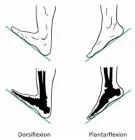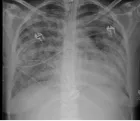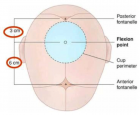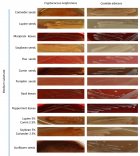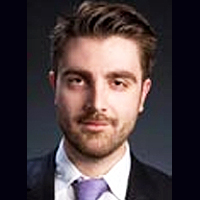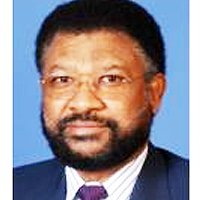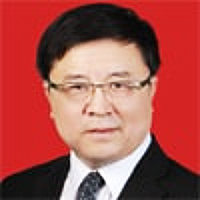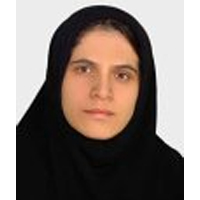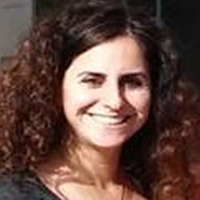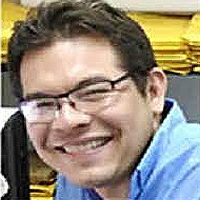Abstract
Research Article
Factors influencing referral delay of cancer patients to an oncology unit in the Southern Region of Saudi Arabia
Ali M Al Zahrani*, Hatim M Ali, Shaza A Ahmed, Ahmed M Abdelakher, Asma A Al Zahrani and Hatoon Bakhribah
Published: 20 August, 2021 | Volume 2 - Issue 1 | Pages: 025-030
Introduction: Cancer treatment and prognosis depend heavily on early detection. Survival in the early stages is excellent for almost all types of cancer. Unfortunately, in Saudi Arabia, a large number of cancer patients present with advanced disease, resulting in a poor prognosis. There are three levels of delay in the management of cancer patients. The first level is the time between the first cancer-related symptoms and the presentation to the health facility, the second level is from the presentation to the diagnosis, and the third level is between the diagnosis and the treatment. This study aims to determine if there is a delay, at what level and to study the factors causing such delays.
Materials and methods: Two hundred cancer patients who presented to the Armed Forces Hospital Southern Region, Oncology Department, were interviewed from January 1st to June 30th, 2018. The interviews were conducted by trained physicians familiar with the questionnaire’s contents. The questionnaire consisted of four sections: a demographic section and three more sections to identify factors causing the delay at the three levels from the patients’ perspectives. All data were analyzed using the SPSS version 20.0.
Results: The mean patient age was 63 years. A total of 112 patients were female and 88 were male. The most common cancer type was breast cancer (27.5%). Among the patients, 61% were illiterate and 25.5% had elementary school degrees, 86% expressed little or no general medical knowledge about cancer. More women than men paid attention to cancer symptoms (70% vs. 54%). 75% of the patients presented to the first health facility after 2 months from the first appearance of symptoms (level 1 delay). Only 2% of the patients presented within one week. 50% of the patients received a diagnosis after visiting two health facilities. All patients were diagnosed at hospitals. 40% of patients used alternative medicines, 70% of whom thought this was the cause of their delayed presentations. 67% had their diagnosis confirmed within one month (level 2 delay), and 66% started their definitive treatment within one month (level 3 delay). 75% of the patients blame themselves for the delay. Educational level (p = 0.03), knowledge about cancer (p < 0.01), and the use of complementary and alternative medicines (CAM)
(p = 0.01) were significantly associated with delayed presentation of patients to the health facility.
Conclusion: There is a delay in the presentation of cancer patients (level 1) in the southern part of Saudi Arabia. Educational level, knowledge of cancer symptoms, and use of complementary and alternative medicines are the main causes. There were no delays in diagnosis and start of treatment (level 2,3).
Read Full Article HTML DOI: 10.29328/journal.jcmhs.1001012 Cite this Article Read Full Article PDF
Keywords:
Cancer; Delay; Complementary and alternative medicine; Cancer education; Cancer knowledge; Saudi Arabia
References
- Hoyert DL, Xu J. Deaths: preliminary data for 2011. National Vital Statistics Reports. 2012; 61: 1-15.
- Saudi Cancer Registry. http://www.scr.org.sa/files/file/2010.pdf
- Almalki M, Fitzgerald G, Clark M. Health care system in Saudi Arabia: an overview. East Mediterr Health J. 2011; 17: 784-793. PubMed: https://pubmed.ncbi.nlm.nih.gov/22256414/
- Olaku O, Zia F, Santana JM, White JD. The National Cancer Institute best case series program: a summary of cases of cancer patients treated with unconventional therapies in India. Integr Cancer Ther. 2013; 12: 385-392. PubMed: https://pubmed.ncbi.nlm.nih.gov/23355475/
- Khalil RB. Attitudes, beliefs and perceptions regarding truth disclosure of cancer-related information in the Middle East: a review. Palliat Support Care. 2013; 11: 69-78. PubMed: https://pubmed.ncbi.nlm.nih.gov/23171758/
- Caswell G, Seymour J, Crosby V, Hussain A, Manderson C, et al. Lung cancer diagnosed following an emergency admission: exploring patient and carer perspectives on delay in seeking help. Support Care Cancer. 2017; 25: 2259-2266. PubMed: https://pubmed.ncbi.nlm.nih.gov/28220316/
- Tørring ML, Frydenberg M, Hansen RP, Olesen F, Vedsted P. Evidence of increasing mortality with longer diagnostic intervals for five common cancers: a cohort study in primary care. Eur J Cancer. 2013; 49: 2187-2198. PubMed: https://pubmed.ncbi.nlm.nih.gov/23453935/
- http://seer.cancer.gov/publications/uscs.html
- De Nooijer J, Lechner L, de Vries H. Help-seeking behaviour for cancer symptoms: perceptions of patients and general practitioners. Psychooncology. 2001; 478: 469-478. PubMed: https://pubmed.ncbi.nlm.nih.gov/11747059/
- Al-Rajhi N, El-Sebaie M, Khafaga Y, AlZahrani A, Mohamed G, et al. Nasopharyngeal carcinoma in Saudi Arabia: clinical presentation and diagnostic delay. East Mediterr Health J. 2009; 15: 1301-1307. PubMed: https://pubmed.ncbi.nlm.nih.gov/20214145/
- Hansen RP, Olesen F, Sørensen HT, Sokolowski I, Søndergaard J. Socioeconomic patient characteristics predict delay in cancer diagnosis: a Danish cohort study. BMC health services research. BMC Health Serv Res. 2008; 8: 49. PubMed: https://pubmed.ncbi.nlm.nih.gov/18307790/
- Sharma K, Costas A, Shulman LN, Meara JG. A Systematic Review of Barriers to Breast Cancer Care in Developing Countries Resulting in Delayed Patient Presentation. J Oncol. 2012; 2012: 121873. PubMed: https://pubmed.ncbi.nlm.nih.gov/22956949/
- Olesen F, Hansen RP, Vedsted P. Delay in diagnosis: the experience in Denmark. Br J Cancer. 2009; 101: 5–8. PubMed: https://pubmed.ncbi.nlm.nih.gov/19956163/
- Berger O, Grønberg BH, Loge JH, et al. Cancer patients’ knowledge about their disease and treatment before, during and after treatment: a prospective, longitudinal study. BMC Cancer. 2018; 18: 381. PubMed: https://pubmed.ncbi.nlm.nih.gov/29614997/
- Parsa P, Kandiah M. Breast cancer knowledge, perception and breast self-examination practices among Iranian women. Int Med J. 2005; 4: 17-24.
- Hanna P, Kangolle T. Cancer control in developing countries: using health data and health services research to measure and improve access, quality and efficiency. BMC Int Health Hum Rights. 2010; 10: 24. PubMed: https://pubmed.ncbi.nlm.nih.gov/20942937/
- Sadler GR, Ko CM, Cohn JA, White M, Weldon RN, et al. Breast cancer knowledge, attitudes, and screening behaviors among African American women: The Black cosmetologists promoting health program. BMC Public Health. 2007; 7: 57. PubMed: https://pubmed.ncbi.nlm.nih.gov/17439662/
- Khokher S, Qureshi W, Mahmood S, Saleem A, Mahmud S. Knowledge, attitude and preventive practices of women for breast cancer in the educational institutions of Lahore, Pakistan. Asian Pac J Cancer Prev. 2011; 12: 2419-2424. PubMed: https://pubmed.ncbi.nlm.nih.gov/22296394/
- Okobia MN, Bunker CH, Okonofua FE, Osime U. Knowledge, attitude and practice of Nigerian women towards breast cancer; a cross sectional study. World J Surg Oncol. 2006; 1: 4-11. PubMed: https://pubmed.ncbi.nlm.nih.gov/16504034/
- Rahman JA. Knowledge attitude and practice on breast cancer among female population of Alur Batu village, Kuantan and its related factors in June 2003. Singapore Med J0 2003; 10: 90-94.
- Ahmed BA. Awareness and practice of breast cancer and breast self examination among university students in Yemen. Asian Pac J Cancer Prev. 2010; 11: 101-105. PubMed: https://pubmed.ncbi.nlm.nih.gov/20593937/
- Richards MA, Smith P, Ramirez AJ, Fentiman IS, Rubens RD. The influence on survival of delay in the presentation and treatment of symptomatic breast cancer. Br J Cancer. 1999; 79: 858-864. PubMed: https://pubmed.ncbi.nlm.nih.gov/10070881/
- Montazeri A, Ebrahimi M, Mehrdad N, Ansari M, Sajadian A. Delayed presentation in breast cancer: a study in Iranian women. BMC Womens Health. 2003; 3: 4. PubMed: https://pubmed.ncbi.nlm.nih.gov/12846932/
- Norsa'adah B, Rampal KG, Rahmah MA, Naing NN, Biswal BM. Diagnosis delay of breast cancer and its associated factors in Malaysian women. BMC Cancer. 2011; 11: 141. PubMed: https://pubmed.ncbi.nlm.nih.gov/21496310/
- Afzelius P, Zedeler K, Sommer H, Mouridsen HT, Blichert-Toft M. Patient’s and doctor’s delay in primary breast cancer. Acta Oncol. 1994; 33: 345-351. PubMed: https://pubmed.ncbi.nlm.nih.gov/8018364/
- Machiavelli M, Leone B, Romero A, Perez J, Vallejo C, et al. Relation between delay and survival in 596 patients with breast cancer. Oncology. 1989; 46: 78-82. PubMed: https://pubmed.ncbi.nlm.nih.gov/2710480/
- Mohd Mujar NM, Dahlui M, Emran NA, Abdul Hadi I, Wai YY, et al. Complementary and alternative medicine (CAM) use and delays in presentation and diagnosis of breast cancer patients in public hospitals in Malaysia. PLoS ONE. 2017; 12: e0176394. PubMed: https://pubmed.ncbi.nlm.nih.gov/28448541/
- Sait KH, Anfinan NM, Eldeek B, Al-Ahmadi J, Al-Attas M, et al. Perception of patients with cancer towards support management services and use of complementary alternative medicine.. A single institution hospital-based study in Saudi Arabia. Asian Pac J Cancer Prev. 2014; 15: 2547-2554. PubMed: https://pubmed.ncbi.nlm.nih.gov/24761862/
- Jazieh AR, Al Sudairy R, Abulkhair O, Alaskar A, Al Safi F, et al. Use of complementary and alternative medicine by patients with cancer in Saudi Arabia. J Altern Complement Med. 2012; 18: 1045-1049. PubMed: https://pubmed.ncbi.nlm.nih.gov/22906212/
- Abuelgasim KA, Alsharhan Y, Alenzi T, Alhazzani A, Ali YZ, et al. The use of complementary and alternative medicine by patients with cancer: a cross-sectional survey in Saudi Arabia. BMC Complement Altern Med. 2018; 18: 88. PubMed: https://pubmed.ncbi.nlm.nih.gov/29530034/
Figures:

Figure 1
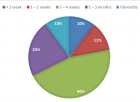
Figure 2
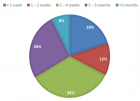
Figure 3
Similar Articles
-
The role of islamic lifestyle and healthy nutrition in accordance with the recommendations of islam and the holly quran by focusing on the risk of cancer incidentRoya Dolatkhah*,Pooneh Jabbaripour,Mohammad Hossein Somi,Ali Roshani. The role of islamic lifestyle and healthy nutrition in accordance with the recommendations of islam and the holly quran by focusing on the risk of cancer incident. . 2020 doi: 10.29328/journal.jcmhs.1001002; 1: 018-022
-
Neo communicable disease rather than ‘non’ communicable disease for the acronym “NCD”APR Aluwihare*. Neo communicable disease rather than ‘non’ communicable disease for the acronym “NCD”. . 2021 doi: 10.29328/journal.jcmhs.1001009; 2: 014-014
-
Factors influencing referral delay of cancer patients to an oncology unit in the Southern Region of Saudi ArabiaAli M Al Zahrani*,Hatim M Ali,Shaza A Ahmed,Ahmed M Abdelakher,Asma A Al Zahrani,Hatoon Bakhribah. Factors influencing referral delay of cancer patients to an oncology unit in the Southern Region of Saudi Arabia. . 2021 doi: 10.29328/journal.jcmhs.1001012; 2: 025-030
-
Causal Mediation Analysis for Childhood Cancer Survival Disparity in Texas, 2005 to 2014Niaz Morshed*, Russell Weaver and F Benjamin Zhan. Causal Mediation Analysis for Childhood Cancer Survival Disparity in Texas, 2005 to 2014. . 2024 doi: 10.29328/journal.jcmhs.1001044; 5: 023-030
-
Case Report: Intussusception in an Infant with Respiratory Syncytial Virus (RSV) Infection and Post-Operative Wound DehiscenceLamin Makalo*,Orlianys Ruiz Perez,Benjamin Martin,Cherno S Jallow,Momodou Lamin Jobarteh,Alagie Baldeh,Abdul Malik Fye,Fatoumatta Jitteh,Isatou Bah. Case Report: Intussusception in an Infant with Respiratory Syncytial Virus (RSV) Infection and Post-Operative Wound Dehiscence. . 2025 doi: 10.29328/journal.jcmhs.1001051; 6: 001-004
Recently Viewed
-
Non-surgical Treatment of Verrucous Hyperplasia on Amputation Stump: A Case Report and Literature ReviewSajeda Alnabelsi*, Reem Hasan, Hussein Abdallah, Suzan Qattini. Non-surgical Treatment of Verrucous Hyperplasia on Amputation Stump: A Case Report and Literature Review. Ann Dermatol Res. 2024: doi: 10.29328/journal.adr.1001034; 8: 015-017
-
Outpatient operative hysteroscopy: evaluation of patient satisfaction and acceptanceClare Margaret Crowley*,Noelle Gill,Minna Geisler. Outpatient operative hysteroscopy: evaluation of patient satisfaction and acceptance. Clin J Obstet Gynecol. 2022: doi: 10.29328/journal.cjog.1001098; 5: 005-008
-
Predictors of positive treatment response to PTNS in women with overactive bladderSuneetha Rachaneni*,Doyo Enki,Megan Welstand,Thomasin Heggie,Anupreet Dua. Predictors of positive treatment response to PTNS in women with overactive bladder. Clin J Obstet Gynecol. 2022: doi: 10.29328/journal.cjog.1001097; 5: 001-004
-
Prediction of neonatal and maternal index based on development and population indicators: a global ecological studySedigheh Abdollahpour,Hamid Heidarian Miri,Talat Khadivzadeh*. Prediction of neonatal and maternal index based on development and population indicators: a global ecological study. Clin J Obstet Gynecol. 2021: doi: 10.29328/journal.cjog.1001096; 4: 101-105
-
A Genetic study in assisted reproduction and the risk of congenital anomaliesKaparelioti Chrysoula,Koniari Eleni*,Efthymiou Vasiliki,Loutradis Dimitrios,Chrousos George,Fryssira Eleni. A Genetic study in assisted reproduction and the risk of congenital anomalies. Clin J Obstet Gynecol. 2021: doi: 10.29328/journal.cjog.1001095; 4: 096-100
Most Viewed
-
Evaluation of Biostimulants Based on Recovered Protein Hydrolysates from Animal By-products as Plant Growth EnhancersH Pérez-Aguilar*, M Lacruz-Asaro, F Arán-Ais. Evaluation of Biostimulants Based on Recovered Protein Hydrolysates from Animal By-products as Plant Growth Enhancers. J Plant Sci Phytopathol. 2023 doi: 10.29328/journal.jpsp.1001104; 7: 042-047
-
Sinonasal Myxoma Extending into the Orbit in a 4-Year Old: A Case PresentationJulian A Purrinos*, Ramzi Younis. Sinonasal Myxoma Extending into the Orbit in a 4-Year Old: A Case Presentation. Arch Case Rep. 2024 doi: 10.29328/journal.acr.1001099; 8: 075-077
-
Feasibility study of magnetic sensing for detecting single-neuron action potentialsDenis Tonini,Kai Wu,Renata Saha,Jian-Ping Wang*. Feasibility study of magnetic sensing for detecting single-neuron action potentials. Ann Biomed Sci Eng. 2022 doi: 10.29328/journal.abse.1001018; 6: 019-029
-
Pediatric Dysgerminoma: Unveiling a Rare Ovarian TumorFaten Limaiem*, Khalil Saffar, Ahmed Halouani. Pediatric Dysgerminoma: Unveiling a Rare Ovarian Tumor. Arch Case Rep. 2024 doi: 10.29328/journal.acr.1001087; 8: 010-013
-
Physical activity can change the physiological and psychological circumstances during COVID-19 pandemic: A narrative reviewKhashayar Maroufi*. Physical activity can change the physiological and psychological circumstances during COVID-19 pandemic: A narrative review. J Sports Med Ther. 2021 doi: 10.29328/journal.jsmt.1001051; 6: 001-007

HSPI: We're glad you're here. Please click "create a new Query" if you are a new visitor to our website and need further information from us.
If you are already a member of our network and need to keep track of any developments regarding a question you have already submitted, click "take me to my Query."








